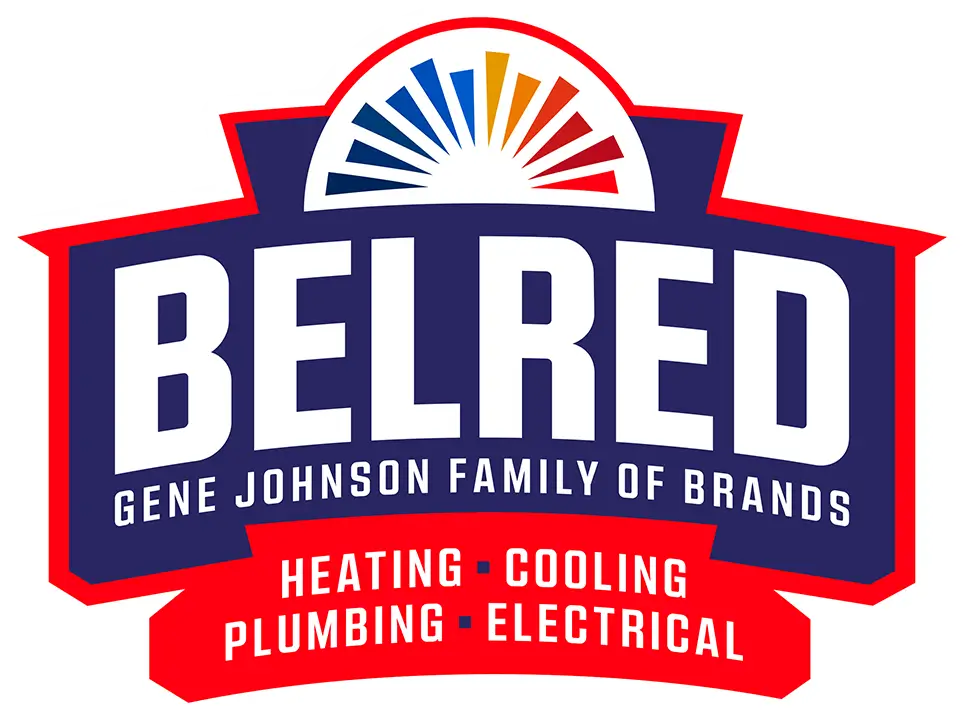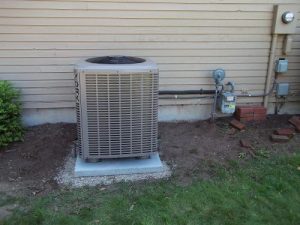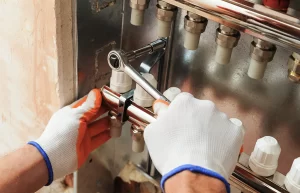An AC capacitor gives your HVAC system a jolt of electricity to jump-start systems. The electrical signals from your AC capacitor compensate for any delays in transmission between your air conditioner and its power source.
Capacitors manage voltage distribution and impact your entire air conditioning system. You may notice manifestations indicating your AC capacitor is failing.
A faulty AC capacitor leaves your AC unit vulnerable to power surges and shortages. It may lead to a spike in your energy bills, a humming noise, or a burning smell.
We must act on these indicators right away. The longer we dismiss the warning signs which indicate a failed capacitor, the more costly AC repair services we may have to enlist to remedy them.
Here’s everything you need to know about AC capacitors and what you can do when they fail.
What Does an AC Capacitor Do for Air Conditioners?
An HVAC unit will have various electrical connections. Wires connect components to transmit commands and initiate automated functions.
Some wires connect your air conditioner to your home’s electrical system. Most wires are enclosed in hard-shell casings, protecting them from exposure. Inside your condenser, you will find small cylindrical objects.
The cylinder is the AC capacitor, and your HVAC system will need it to facilitate electricity. The jolt of electricity is accurately calculated to just the right amount that your air conditioner needs to kick off its cooling cycle immediately.
The AC capacitor collects, stores, and redistributes adequate energy to your AC unit. The amount of energy it takes to get your AC motor running immediately and effectively depends on various factors, including the volume of hot air your AC unit is surrounded by or harboring internally.
AC capacitors are vital in the cooling cycle, affecting how efficiently you receive temperature demands. Depending on the size and kind of HVAC units you have at home, an air conditioner will have at least one capacitor and possibly more.
How Many Capacitors Does My Air Conditioner Have?
All AC units have a start capacitor assigned to manage their electrical distribution. However, your heating and cooling systems may have a single or dual capacitor.
Dual capacitors have two cylinders that each share the same function as the other. One may be a system in reserve that jumps in when the other capacitor fails. They may also work together, taking turns or working simultaneously to power a larger HVAC system.
A dual capacitor has start and run capacitors. The start capacitor stores enough energy to start your engine. Run capacitors intermittently inject more power to keep the motor running.
Each AC capacitor plays a vital role in reliable air conditioning, with one faulty AC capacitor being enough to stall the entire AC unit.
Single capacitors can facilitate enough power for one air conditioner. However, AC breakdowns sometimes have to do with insufficient power distribution.
A reliable HVAC contractor will ensure the AC capacitor matches your HVAC’s needs, but it would if you had first-hand knowledge about your air conditioner and its needs.
Where is the AC Capacitor in my AC Unit?
Before we tell you where it is, please read the following disclaimer.
- WARNING: Handling the capacitor assigned to various functions of your AC unit is dangerous. DO NOT TOUCH AC CAPACITORS, especially when they are failing or stalling. Handling an AC capacitor may lead to electrocution and severe burns.
Call your HVAC contractor to facilitate AC capacitor repair and replacement.
The AC capacitor lies within the breaker panel, located inside the outdoor unit of your air conditioner. One or two small cylindrical objects within the breaker panel may contain your AC capacitors.
It is best to leave them under the care of an experienced HVAC technician. They may still hold high-voltage levels, even when they succumb to typical wear and tear or begin failing your cooling system.
Please do not attempt a DIY AC repair with your AC capacitors. If your AC units have a damaged capacitor, call in the experts.
What Does an AC Capacitor Do to My Air Conditioner When it Fails?
If your start capacitor fails, your air conditioner won’t be able to cycle on. If your run capacitor fails, your AC unit will have trouble staying on.
The intermittent cycling will affect internal electrical signals and may impact the rest of the breaker panel. Your AC unit may blow a fuse which leads to more indicators. You may also hear or smell unusual noises or odors. Trust us; it won’t be difficult to tell when your AC unit has a bad capacitor.
Indicators of Your AC Capacitor Failing
Is your AC unit humming or noticeably struggling? Are there inexplicable spikes in your energy bills?
An air conditioner capacitor does not only impact performance, but it also instigates it! An AC unit cannot have any sort of “performance” for you to determine without a start capacitor initiating its functions and a run capacitor to keep the motor running!
In short, you will know immediately if your AC unit has a failing AC capacitor. However, there are warning signs that indicate a looming AC capacitor failure.
Symptoms of a Failing AC Capacitor
These three symptoms may not indicate a faulty capacitor on their own, but if you notice them all at once, you can soon count on capacitor-related AC breakdowns.
- Struggling blower motor (subpar air conditioning, extremely hot temperatures from your indoor air handler, or notice a slow-rocking motion from the condenser)
- Hearing the outdoor unit humming (due to struggling motors, short circuits, and malfunctioning fan blades)
- A burning smell coming from air vents and indoor handlers (it may indicate overheating or a blown fuse)
What to Do When AC Capacitor Fails?
If your AC capacitors fail, you should immediately call a technician to examine your AC unit. It is best to disconnect power attachments from your air conditioner before reporting your failing AC capacitor.
However, disconnecting your AC units from power sources is the most you should do without the help of an expert technician. We have said it once, but it bears repeating; do not attempt to handle your AC capacitor.
Once your AC capacitor fails, there isn’t much else you can do but switch your air conditioner OFF, disconnect power transmission, and call the experts. It would be best to focus on what you can do before your AC capacitor fails.
How to Prevent Failing AC Capacitors?
Before your AC capacitor fails, keep an eye on your air conditioner and always stick with AC maintenance schedules. Routine maintenance helps keep all HVAC components in check.
Washington is one of the colder states in the United States. Neglecting routine maintenance or inspection may result in frost and ice particles saturating your HVAC system, especially in outdoor units.
Frost particles can hinder functions and burden your AC capacitor. Ensure you schedule relevant pre-season maintenance for all of your HVAC systems.
Preventive Maintenance and AC Tune-Ups
Preventive maintenance includes comprehensive cleaning and tune-ups. A tune-up helps your HVAC system perform at its utmost capacity against harsher weather conditions.
You may have reservations about regular maintenance fees. However, they will not cost you as much as significant AC repairs or buying an entirely new HVAC system.
Repair Costs
Repairing or replacing components will always cost you more than maintenance fees! Repair costs range between $50 to thousands of dollars, and an AC capacitor replacement or repair may cost $100 to $500.
You can buy a new capacitor, but you will need to keep replacing capacitors in case there’s an underlying root cause that isn’t addressed. Replacing your old capacitor costs depend on which capacitor assigned to which function on your AC unit is failing and the extent of its damages.
Get to Know Your HVAC System
Your HVAC system is a complex mechanism that only works properly when each component consistently serves its purpose. Naturally, critical components are shielded from external exposure.
However, they are not immune to all possible dangers. Unfortunately, your AC capacitor lies within the more exposed unit.
Condensing Unit
Your condenser unit is outside and is more prone to surrounding elements. Your AC capacitor failing may lead to the outdoor unit humming or shaking.
Erratic weather conditions or wear and tear are enough to impact your AC capacitor, possibly rendering them useless or dysfunctional. You can say goodbye to your home’s reliable cool air and manageable utility bills.
Routine Maintenance and Tune-Up Services in Mukilteo, Washington
Don’t wait for AC breakdowns and AC capacitors to fail. Hire professional Air Conditioning Maintenance to look after your air conditioner at least once a year.
Keeping up with his routine helps you find and prevent impending damages before they require costly repairs.
To manage your finances better, enlist the help of reliable and knowledgeable experts!
BelRed for Your Air Conditioners
If you have HVAC problems, we have their solutions! We have professionals who can get the job done effectively and efficiently!
Trust your HVAC concerns at the hands of professionals who have provided services all over Washington for over three decades! Call BelRed for HVAC assistance in Mukilteo, Washington, today!







